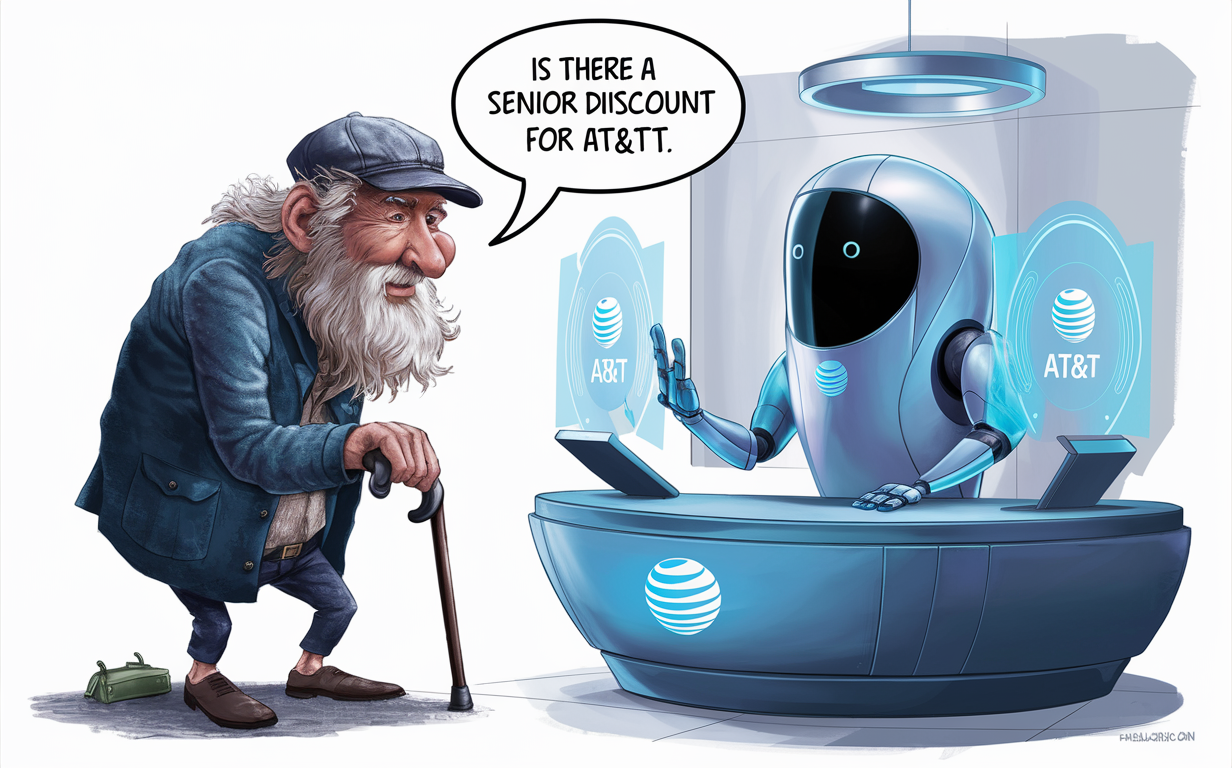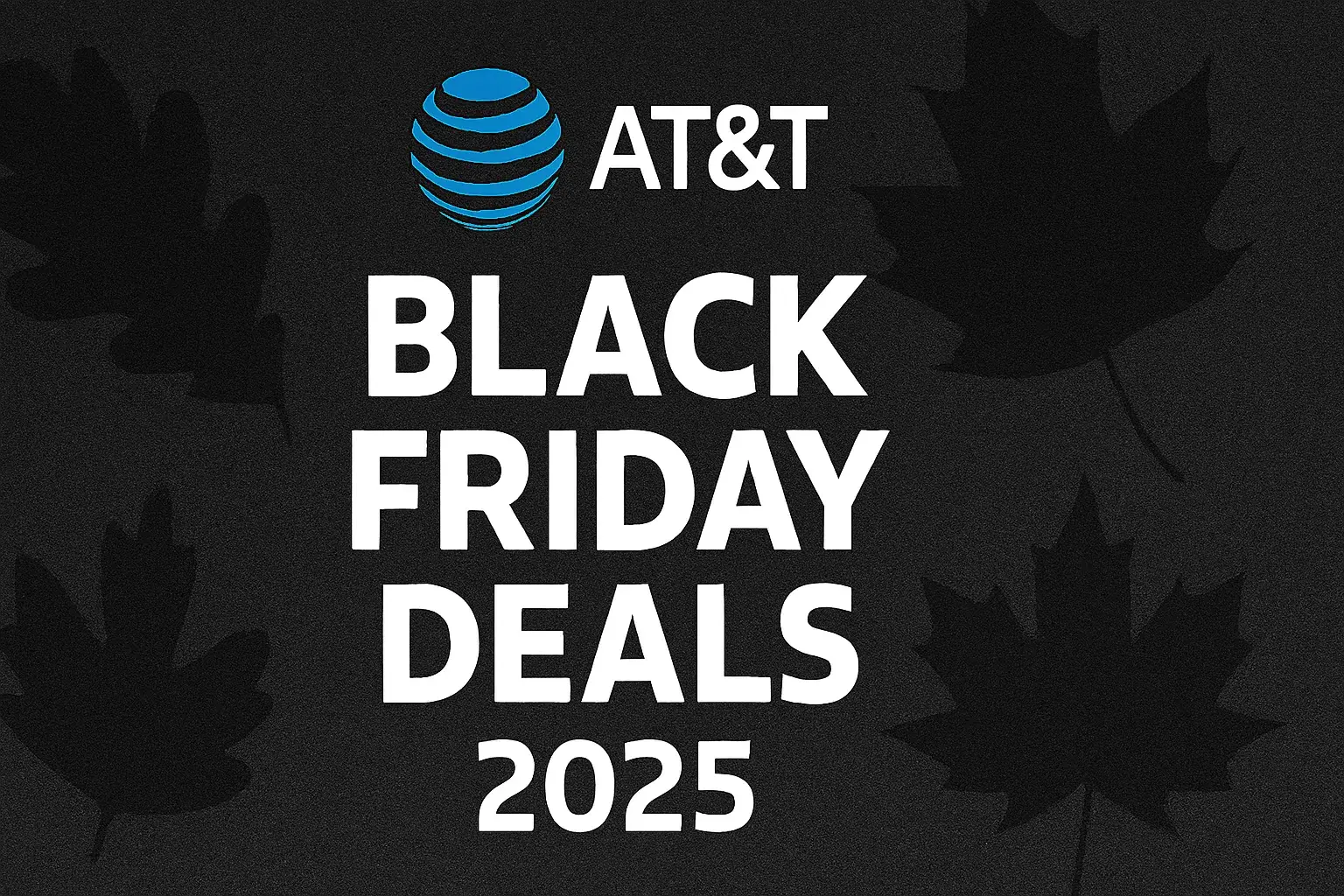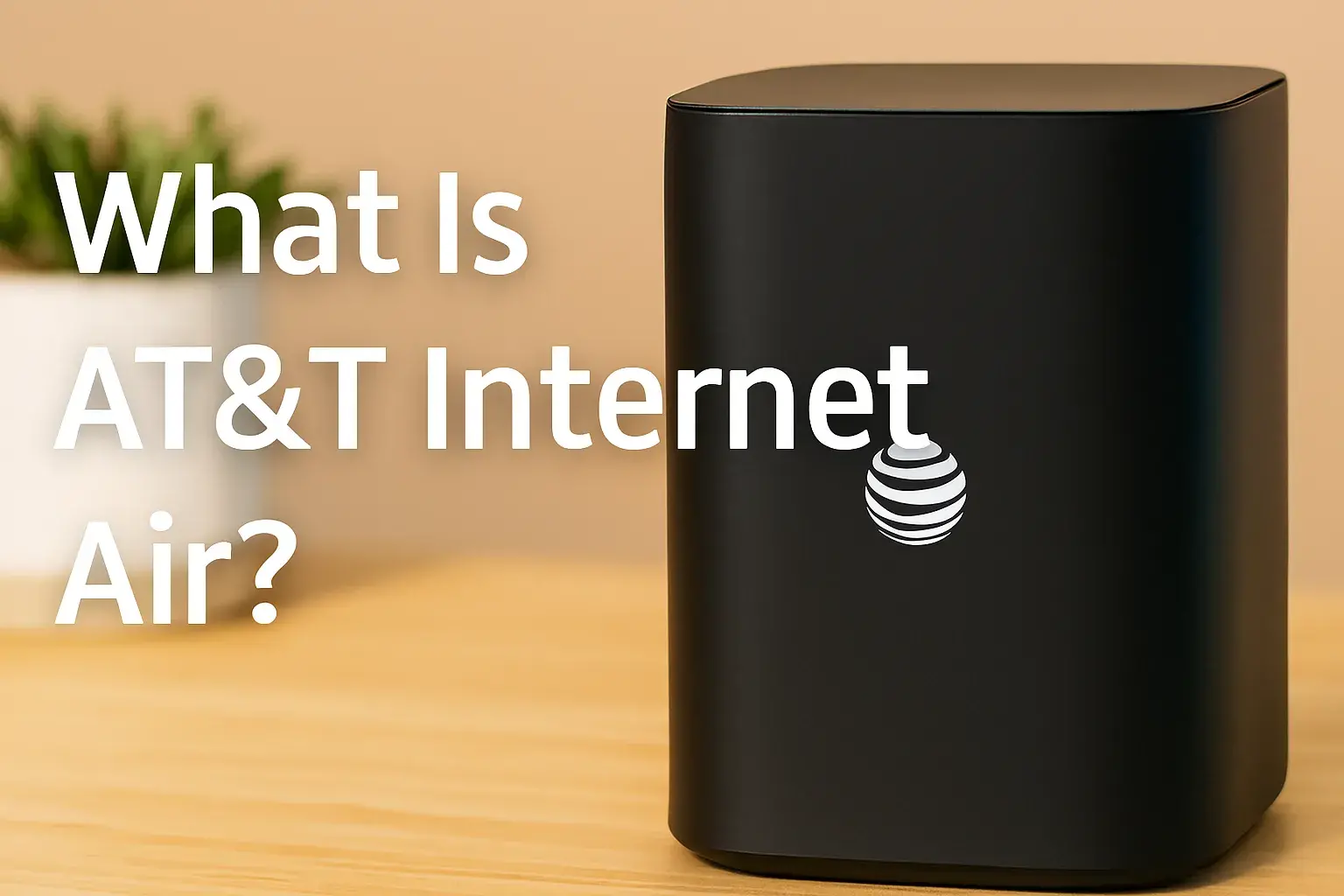Is there a senior discount for AT&T?

Searching for ways to save on your AT&T services? Many seniors actively seek discounts, and the question "Is there a senior discount for AT&T?" is common. This guide provides a comprehensive, up-to-date answer for 2025, exploring AT&T's offerings and alternatives to help you find the best value.
Understanding AT&T Discounts and Senior Programs
When inquiring about senior discounts, it's important to understand how telecommunication companies, including AT&T, typically structure their savings. While a direct, universally advertised "AT&T Senior Discount" for all services might not be readily apparent in 2025, the company does offer various programs and promotions that can benefit seniors, often indirectly. These can include:
- Bundling Discounts: Combining multiple services (e.g., internet, TV, mobile) can often lead to significant savings compared to subscribing to each service individually. Many seniors find this a practical way to reduce their overall monthly bills.
- Loyalty Programs: Long-term customers may be eligible for special offers or credits. If you've been with AT&T for many years, it's worth inquiring about any loyalty benefits.
- Promotional Offers: AT&T frequently runs limited-time promotions for new and existing customers. These can apply to specific plans, devices, or service upgrades. Staying informed about these can lead to substantial savings.
- Government Assistance Programs: For eligible low-income individuals, including seniors, there are government programs like the Lifeline program that can provide discounts on phone and internet services. AT&T participates in these programs.
- Employer/Affiliation Discounts: Some employers, alumni associations, or professional organizations have partnerships with AT&T that offer exclusive discounts to their members. It's always worth checking if your past or present affiliations qualify.
The landscape of telecommunication discounts is dynamic. What might not be a prominent "senior discount" today could evolve, or alternative savings avenues might emerge. The key is to be proactive in your inquiries and explore all available avenues.
AT&T Wireless: Exploring Potential Savings
When it comes to mobile phone plans, the question of a senior discount is particularly relevant. Many seniors rely on their mobile phones for staying connected with family, accessing information, and for safety. While AT&T doesn't typically advertise a blanket "senior discount" on its standard wireless plans in 2025, there are several ways seniors can achieve savings:
Understanding AT&T's Standard Wireless Plans
AT&T offers a range of wireless plans designed for different user needs. These include:
- Unlimited Basic: A foundational unlimited data plan.
- Unlimited Extra: Offers more high-speed data and hotspot data.
- Unlimited Premium: Provides the most high-speed data, hotspot data, and premium features.
These plans are generally priced based on the number of lines and the specific features included. Seniors, like all customers, can benefit from these plans, but the savings often come from choosing the right plan for their usage and taking advantage of other offers.
Potential Savings on Wireless Services
Even without a specific senior discount, seniors can find ways to reduce their AT&T wireless bills:
- Multi-Line Discounts: If multiple family members are on the same AT&T account, the per-line cost often decreases as you add more lines. This can be a significant saving for couples or families.
- Autopay and Paperless Billing: AT&T often provides a monthly discount for customers who sign up for automatic payments and paperless billing. This is a straightforward way to save a few dollars each month.
- Switching to a Lower Tier Plan: Many seniors may not require unlimited premium data or extensive hotspot usage. Evaluating current data consumption and switching to a more basic or appropriately tiered plan can lead to direct savings. For instance, if you primarily use Wi-Fi and only need a few GB of data for occasional use, a plan with a data cap might be more cost-effective.
- BYOD (Bring Your Own Device) Promotions: If you own a compatible smartphone outright, you can often save money by not financing a new device through AT&T. AT&T sometimes offers promotions for customers who bring their own devices and switch to their network.
- Lifeline Program: As mentioned, the federal Lifeline program provides a discount on phone service for eligible low-income consumers, including those who meet certain income thresholds or participate in other federal assistance programs. Seniors are often eligible for this program. To check eligibility and apply, you can visit the FCC's Lifeline website or inquire with AT&T directly about their participation.
- Access Wireless and similar programs: While not directly AT&T, some third-party providers offer discounted wireless services specifically for seniors or low-income individuals, often utilizing major network infrastructure like AT&T's. These are worth exploring if direct AT&T discounts are limited.
Senior-Focused Wireless Device Programs
While not a discount on the monthly service, AT&T may offer promotions on devices that can be particularly appealing to seniors. These might include:
- Bundled Deals: Sometimes, purchasing a new phone comes with special offers on accessories or even a small credit towards the monthly service for a limited time.
- Trade-In Offers: Trading in an old device can significantly reduce the cost of a new smartphone.
It's crucial to regularly check the AT&T website or speak with a customer service representative about current promotions, as these change frequently. The absence of a named "senior discount" doesn't mean there aren't ways to lower your monthly wireless bill.
AT&T Internet and TV: Are There Senior-Specific Plans?
Similar to wireless services, AT&T does not typically advertise specific "senior plans" for its internet and television services in 2025. However, savings are still achievable through strategic choices and by leveraging existing AT&T offerings.
AT&T Internet Plans and Potential Savings
AT&T offers various internet technologies, including:
- Fiber Internet: For areas where available, AT&T Fiber provides high-speed, reliable internet.
- DSL Internet: Available in many areas, offering a range of speeds.
- Fixed Wireless Internet: A solution for some rural or underserved areas.
Savings on internet services can be realized through:
- Bundling with Other Services: As mentioned, bundling internet with AT&T TV or wireless can unlock discounts. This is often one of the most effective ways to reduce the overall cost of multiple services.
- Promotional Pricing: New customer promotions for internet service are common. While these are typically advertised for new sign-ups, long-term customers might be able to negotiate similar rates or receive loyalty credits by inquiring.
- Choosing the Right Speed Tier: Many seniors may not need the highest internet speeds available. Carefully assess your online activities (e.g., email, browsing, streaming) and select a plan that meets your needs without overpaying for unused bandwidth. For example, if your primary use is email and occasional news browsing, a lower-speed DSL plan might be perfectly adequate and significantly cheaper than a high-speed fiber plan.
- Internet Plans for Qualifying Low-Income Households: AT&T participates in the federal Affordable Connectivity Program (ACP), which provides a discount of up to $30 per month (or $75 per month for households on qualifying Tribal lands) toward internet service. Eligibility is based on income or participation in other federal assistance programs. Seniors who meet the criteria can significantly reduce their internet bills through this program. Check the FCC's ACP website for details and application procedures.
AT&T TV Packages and Senior Value
AT&T TV (which includes DIRECTV and U-verse TV services, depending on your region and offerings) provides a wide array of channels. While there isn't a specific senior package, seniors can find value by:
- Selecting a Basic Package: Opting for a more fundamental TV package that includes essential channels can save money. Many seniors may not require the extensive sports, movie, or premium channel lineups.
- Bundling Internet and TV: Combining your internet and TV services through AT&T often results in a lower combined monthly bill than paying for each separately.
- Avoiding Premium Channels: Unless you are a dedicated fan of specific premium channels like HBO, Showtime, or Cinemax, skipping these can lead to substantial savings.
- Utilizing On-Demand and Streaming Apps: Many AT&T TV packages include access to on-demand content and apps that allow you to watch shows on various devices. This can sometimes reduce the need for additional streaming subscriptions.
- Reviewing Equipment Fees: Be mindful of any rental fees for set-top boxes or other equipment. Sometimes, purchasing compatible equipment outright can be more cost-effective in the long run, though this is less common with modern TV services.
It's always recommended to speak directly with an AT&T sales representative or customer service agent to discuss your specific needs and explore any current promotions or package deals that might be suitable. They can help you navigate the available options and find the most cost-effective solution for your household.
Alternatives to Direct AT&T Senior Discounts
Given that direct, advertised senior discounts from AT&T for all services are not a prominent feature in 2025, exploring alternative strategies and providers becomes essential for seniors looking to maximize their savings. These alternatives can often provide comparable or even better value.
Leveraging Government Assistance Programs
These programs are specifically designed to make essential services more affordable for low-income individuals and households, including many seniors. As previously mentioned, two key programs are:
- Lifeline: A federal program that provides a discount on monthly telephone service (landline or wireless) and sometimes internet service. Eligibility is typically based on income or participation in other federal assistance programs like Medicaid, SNAP, or SSI.
- Affordable Connectivity Program (ACP): A program from the FCC that provides a discount of up to $30 per month (or $75 per month on Tribal lands) towards internet service and a discount on a one-time purchase of a tablet, laptop, or desktop computer. Eligibility is based on income or participation in programs like SNAP, Medicaid, SSI, WIC, or the National School Lunch Program.
AT&T participates in both Lifeline and ACP. Seniors who qualify can significantly reduce their monthly bills for phone and internet by enrolling. It's crucial to verify eligibility and apply through the official channels.
Exploring Discount Wireless Carriers (MVNOs)
Many seniors find that they can get excellent mobile service at a fraction of the cost by using Mobile Virtual Network Operators (MVNOs). These companies lease network capacity from the major carriers (like AT&T, Verizon, and T-Mobile) and offer their own plans, often at much lower prices. Some popular MVNOs that use the AT&T network include:
- Cricket Wireless: Owned by AT&T, Cricket offers prepaid wireless plans with unlimited talk and text, and various data options. They often have competitive pricing and can be a great option for seniors looking for straightforward, affordable mobile service.
- Consumer Cellular: This carrier specifically targets seniors and offers flexible plans that can be scaled to individual needs. They use both AT&T and T-Mobile networks, allowing for broad coverage. Consumer Cellular is known for its excellent customer service and easy-to-understand pricing.
- Straight Talk: Available at major retailers, Straight Talk offers a variety of prepaid plans using AT&T's network. They often have plans with generous data allowances at competitive prices.
- Mint Mobile: Known for its bulk-buying model (buying plans in 3, 6, or 12-month increments), Mint Mobile offers very low monthly rates, especially for those who can commit to longer terms. They utilize the T-Mobile network primarily but are a strong contender in the discount space.
When considering an MVNO, it's important to check their coverage maps to ensure they provide reliable service in your area, as they rely on the underlying network infrastructure of the major carriers.
Comparing Bundles from Other Providers
While AT&T offers bundles, other major providers like Verizon, Spectrum, and Xfinity also provide bundled packages of internet, TV, and mobile services. It's worthwhile to compare their offerings, pricing, and any specific promotions they might have for seniors or new customers. Sometimes, a competitor's bundle might offer better value or include features that are more important to your household.
Considering Landline Alternatives
For seniors who still rely on a landline, the cost can add up. Consider these alternatives:
- VoIP (Voice over Internet Protocol) Services: Services like Ooma or MagicJack offer home phone service over your internet connection, often at a much lower monthly cost than traditional landlines. Some may have a one-time equipment purchase fee but very low or no monthly service fees.
- Cell Phone Only: If a landline is no longer essential, transitioning to a mobile phone plan (perhaps from an MVNO) can eliminate the landline expense entirely.
The key takeaway is that while a direct AT&T senior discount might be elusive, a combination of government assistance, alternative carriers, and smart plan selection can lead to significant savings on telecommunication services for seniors.
Maximizing Your AT&T Bill in 2025: Strategies for Seniors
For seniors who are already AT&T customers or prefer to stay with the provider, there are proactive strategies to employ in 2025 to ensure they are getting the best possible value and minimizing their monthly expenses. This involves a combination of understanding your current plan, negotiating, and staying informed.
Conduct Regular Bill Audits
It's easy for bills to creep up over time with added fees, expired promotions, or changes in service. Seniors should make it a habit to:
- Review Monthly Statements Carefully: Look for any unfamiliar charges, price increases, or fees that don't seem to apply.
- Verify Plan Inclusions: Ensure you are still using the features and data allowances you are paying for. If your usage has decreased, you might be overpaying for a higher-tier plan.
- Check for Expired Promotions: Many introductory offers have a limited duration. Be aware of when these expire so you can either negotiate a new deal or adjust your plan accordingly before the price jumps.
Proactive Negotiation with AT&T
Customer service representatives often have the authority to offer discounts or adjust plans to retain customers, especially those who are long-term or have indicated they are considering other options. Seniors can try the following:
- Call Customer Service: Directly call AT&T's customer service line. Explain that you are a long-time customer looking to reduce your monthly bill.
- Mention Competitor Offers: If you've seen better deals from competitors, mention them politely. This can prompt AT&T to make a competitive offer.
- Inquire About Loyalty Discounts: Ask specifically if there are any loyalty programs or discounts available for long-term customers.
- Ask About Bundling: If you have separate AT&T services (e.g., internet and mobile), inquire about the savings associated with bundling them into a single package.
- Be Prepared to Switch: While not always necessary, being willing to switch providers if you can't get a satisfactory rate can be a powerful negotiation tactic.
Leverage Device Upgrade Cycles Wisely
New phone deals often come with trade-in offers or installment plans. Seniors can maximize these by:
- Waiting for Promotions: AT&T frequently runs promotions on popular devices, especially around holidays or new model releases.
- Comparing Installment Plans: Understand the total cost of a device over the installment period. Sometimes, buying a phone outright from a third party and using it with AT&T's BYOD (Bring Your Own Device) plan can be cheaper.
- Maximizing Trade-In Value: Keep older devices in good condition to get the best trade-in value when upgrading.
Stay Informed About AT&T's Offers
AT&T's website, email newsletters, and even direct mail can announce new promotions or changes to existing plans. Seniors should:
- Visit the AT&T Website Regularly: Check the "Deals" or "Promotions" sections.
- Sign Up for Email Alerts: Receive notifications about new offers directly.
- Follow AT&T on Social Media: Sometimes, flash deals or special announcements are made on their social channels.
Utilize AT&T's Self-Service Tools
The AT&T website and mobile app offer tools that can help manage your account and potentially find savings:
- MyATT App/Website: Allows you to view your bill, check data usage, and sometimes explore plan upgrade options or available promotions.
- Plan Comparison Tools: Use these to see if a different plan might better suit your current needs and potentially save money.
By actively managing their accounts and staying informed, seniors can significantly reduce their AT&T bills in 2025, even without a specific senior discount. It's about being a savvy consumer and taking advantage of the available programs and negotiation opportunities.
Comparing AT&T with Competitors for Senior Value
When evaluating telecommunication services, especially with a focus on senior value, it's beneficial to compare AT&T's offerings against those of its major competitors. This comparison should consider not just price but also coverage, customer service, and specific programs that might appeal to older adults.
AT&T vs. Verizon
Coverage: Both AT&T and Verizon boast extensive nationwide 4G LTE and 5G networks, often considered the most reliable. Coverage can vary by specific location, so checking maps for your primary areas of use is recommended.
Plans: Both offer a tiered structure of unlimited plans with varying data allowances and features. Neither prominently advertises a specific "senior discount" on their main plans. However, both participate in government assistance programs like Lifeline and ACP.
Senior-Specific Considerations: Verizon has historically been perceived as having slightly better customer service, which can be a significant factor for seniors. Both offer discounts for military and first responders, but not a broad senior category.
Value Proposition: For seniors, the choice between AT&T and Verizon often comes down to specific promotional offers at the time of sign-up, coverage in their most frequented locations, and personal preference regarding customer service interactions.
AT&T vs. T-Mobile
Coverage: T-Mobile has significantly improved its network coverage, particularly with its 5G expansion. While it may still lag slightly behind AT&T and Verizon in some rural areas, it's a strong contender for many.
Plans: T-Mobile often positions itself as a value leader, with plans that can be very competitive. They sometimes include perks like free Netflix subscriptions or international roaming benefits, which could appeal to some seniors.
Senior-Specific Considerations: T-Mobile does not have a formal senior discount. However, their simpler plan structures and often aggressive promotional pricing can make them an attractive option for budget-conscious seniors. They also participate in Lifeline and ACP.
Value Proposition: T-Mobile might offer more data or perks for a similar price point compared to AT&T or Verizon, making it a strong option for seniors who want more features without a premium price tag, provided coverage is adequate.
AT&T vs. MVNOs (using AT&T's Network)
Cricket Wireless: As mentioned, Cricket is owned by AT&T and uses its network. Plans are typically prepaid and significantly cheaper than AT&T's direct offerings. They offer unlimited talk, text, and data plans with varying high-speed data caps. This is often a prime alternative for seniors seeking AT&T network coverage at a lower cost.
Consumer Cellular: While using AT&T and T-Mobile networks, Consumer Cellular is specifically geared towards seniors. Their plans are flexible, allowing users to choose their talk, text, and data needs, and they are known for excellent, patient customer support tailored to older adults. Pricing is generally very competitive.
Value Proposition: For seniors who want the AT&T network but are looking for significant cost savings, Cricket Wireless is an excellent choice. For those prioritizing tailored customer service and flexible, affordable plans, Consumer Cellular is a top contender.
AT&T vs. Cable Companies (Bundled Services)
Companies like Spectrum and Xfinity offer bundled packages that include internet, TV, and sometimes mobile services. These can be highly competitive, especially for seniors who want all their services from a single provider.
Value Proposition: Cable companies often have aggressive introductory offers for bundled services. It's essential to compare the total monthly cost, the speed and reliability of their internet, the channel selection for TV, and any data caps or throttling policies for their mobile offerings.
Key Comparison Points for Seniors
- Coverage Reliability: Essential for staying connected, especially in emergencies. Check coverage maps for your specific needs.
- Plan Simplicity: Straightforward plans with easy-to-understand pricing are often preferred.
- Customer Service: Accessible, patient, and helpful customer support is invaluable.
- Cost: The monthly bill is a primary concern for many seniors on fixed incomes.
- Government Program Participation: Ensuring providers accept Lifeline and ACP discounts is crucial for eligible individuals.
In summary, while AT&T offers reliable service, seniors often find better direct value by exploring MVNOs that use the AT&T network (like Cricket or Consumer Cellular) or by comparing bundled offers from major competitors and cable providers. Always check for current promotions and eligibility for government assistance programs.
Conclusion: Your AT&T Savings Guide
Navigating the world of telecommunication services can be complex, and the question "Is there a senior discount for AT&T?" is a common one. In 2025, AT&T does not prominently advertise a specific, universal senior discount across all its services. However, this does not mean seniors cannot achieve significant savings on their AT&T bills or comparable services. The key lies in understanding the available avenues for discounts and choosing the most suitable options.
For AT&T wireless, internet, and TV services, savings can be realized through bundling, opting for lower-tier plans that match usage, taking advantage of autopay discounts, and participating in promotions. Crucially, eligible seniors can dramatically reduce their costs by enrolling in government assistance programs like Lifeline and the Affordable Connectivity Program (ACP), both of which AT&T participates in. These programs are designed to make essential communication services accessible to those who need them most.
Beyond direct AT&T offerings, exploring alternative providers, particularly Mobile Virtual Network Operators (MVNOs) that utilize AT&T's network, such as Cricket Wireless and Consumer Cellular, presents a compelling opportunity for substantial savings. These carriers often provide similar coverage at a fraction of the cost, with Consumer Cellular specifically catering to senior needs with tailored plans and customer support.
Ultimately, maximizing your telecommunication budget in 2025 requires a proactive approach. Regularly auditing your bills, inquiring about loyalty discounts, comparing offers from AT&T and its competitors, and leveraging government assistance programs are all essential strategies. By staying informed and exploring all available options, seniors can ensure they are receiving the best value for their mobile, internet, and television services, whether they choose to stay with AT&T or find a more budget-friendly alternative.





